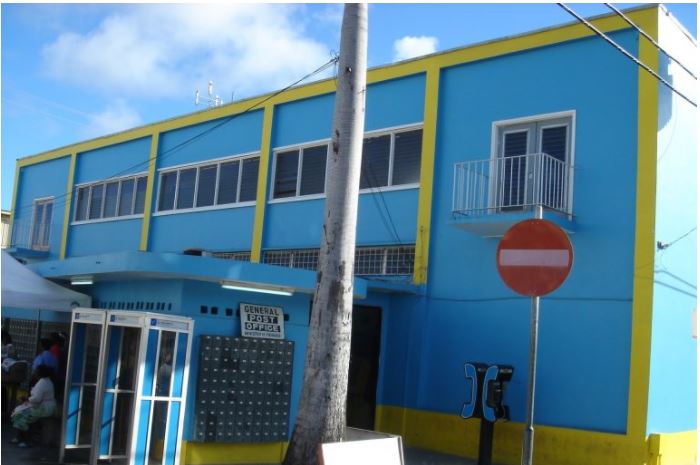Аdvеrtіѕе wіth thе most visited news site in Antigua and Barbuda ~ Wе оffеr fullу сuѕtоmіzаblе аnd flехіblе dіgіtаl mаrkеtіng расkаgеѕ. Yоur соntеnt іѕ dеlіvеrеd іnѕtаntlу tо thоuѕаndѕ оf uѕеrѕ іn Antigua аnd аbrоаd via our One Signal push notifications! Соntасt uѕ аt [email protected].
———————————————————————
(CMC) – The United Nation’s education, science and culture agency, UNESCO, is urging Caribbean countries to be part of a global ban on the use of mobile phones in schools. CLICK HERE TO JOIN OUR WHATSAPP GROUP FOR NEWS UPDATES.
A New UN report is raising concerns about the excessive use of smartphones and its impacts on learning.
The UNESCO report on technology in education urges countries to carefully consider how technology is used in schools and emphasises the need for a “human-centred vision” where digital technology serves as a tool rather than taking precedence.
UNESCO’s Director of the Global Education Monitoring, Manos Antoninis, is also warning of the danger of data leaks in educational tech, as only 16 per cent of countries guarantee data privacy in the classroom, by law.
“We know that vast amounts of data are being used without the appropriate regulation, so this data ends up being used for other non-educational purposes, commercial purposes and that’s of course a violation of rights that needs to be regulated.”
The UNESCO report also highlights the disparities created by digital learning.
It noted that during the COVID-19 pandemic, half a billion students worldwide were left out due to the shift to online-only tuition.
Geographically, the report noted a significant imbalance in online resources favouring Europe and North America.
UNESCO is urging countries to set their own standards for the way technology is designed and used in education such that it never replaces in-person, teacher-led instruction and supports the shared objective of quality education for all.
“The digital revolution holds immeasurable potential but, just as warnings have been voiced for how it should be regulated in society, similar attention must be paid to the way it is used in education,” warned UNESCO Director-General Audrey Azoulay.
“Its use must be for enhanced learning experiences and for the well-being of students and teachers, not to their detriment.”
The report, ” Techonology in education: A tool on whose terms? was launched at an event in Uruguay hosted by UNESCO and the Ministry of Education and Culture of that country with additional support from the Ceibal Foundation and 18 ministers of education from around the world.
It proposes four questions that policymakers and educators should reflect upon as educational technology becomes increasingly accessible and utilised around the globe.
The first question focuses on the appropriate use of technology in class. Disabled children who may struggle in a traditional, in-person setting may also benefit from the option of technological assistance.
“The opportunities it has opened up are incredible, and we are always amazed by the new windows this opens for learners,” said Antoninis, who is responsible for producing the report.
“We need to learn about our past mistakes when using technology in education so that we do not repeat them in the future.
We need to teach children to live both with and without technology; to take what they need from the abundance of information, but to ignore what is not necessary; to let technology support, but never supplant human interactions in teaching and learning,” he added.
The rapid shift to online learning during the COVID-19 pandemic left out an estimated 500 million students worldwide, mostly affecting those in marginalised, rural communities.
The report underlines that the right to education is increasingly synonymous with the right to meaningful connectivity, yet one in four primary schools do not have electricity.
It calls for all countries to set benchmarks for connecting schools to the Internet between now and 2030, and for the primary focus to remain on these marginalized communities.
UNESCO notes that there’s a lack of impartial evidence concerning the added value of tech.
It notes that most evidence comes from the United States, where the What Works Clearinghouse pointed out that less than two per cent of education interventions assessed had “strong or moderate evidence of effectiveness”.
UNESCO argues that the evolution of technology is putting strain on education systems to adapt and that digital literacy and critical thinking are increasingly important, particularly with the growth of generative artificial intelligence (AI).
Additional data in the report shows that this adaptation movement has begun with 54 per cent of countries surveyed have outlined skills they want to develop for the future, but only 11 out of 51 governments surveyed have curricula for AI.
“Let’s not forget that to be able to navigate the digital world, we don’t necessarily need very sophisticated skills.
Those who have the best reading skills are those least likely to be duped by a phishing email, for instance,” said Antoninis.
Moreover, teachers also need appropriate training yet only half of countries currently have standards for developing educators’ information and communication technology skills.
Even fewer have teacher training programmes covering cybersecurity, despite five per cent of ransomware attacks targeting education.
CLICK HERE TO JOIN OUR WHATSAPP GROUP FOR NEWS UPDATES.
Make a donation to help support ABN, via PayPal: [email protected]. Follow Antigua Breaking News on Twitter @ABNAntigua and Instgram @AntiguaBreakingNews and on Facebook. Send us a message on WhatsApp at 1-868-704-9864 or email us at [email protected].
JOIN OUR WHATSAPP GROUP FOR NEWS UPDATES: CLICK HERE.
JOIN OUR WHATSAPP GROUP FOR NEWS UPDATES: CLICK HERE.
JOIN OUR WHATSAPP GROUP FOR NEWS UPDATES: CLICK HERE.
JOIN OUR WHATSAPP GROUP FOR NEWS UPDATES: CLICK HERE.
JOIN OUR WHATSAPP GROUP FOR NEWS UPDATES: CLICK HERE.
JOIN OUR WHATSAPP GROUP FOR NEWS UPDATES: CLICK HERE.
JOIN OUR WHATSAPP GROUP FOR NEWS UPDATES: CLICK HERE.
JOIN OUR WHATSAPP GROUP FOR NEWS UPDATES: CLICK HERE.
JOIN OUR WHATSAPP GROUP FOR NEWS UPDATES: CLICK HERE.
JOIN OUR WHATSAPP GROUP FOR NEWS UPDATES: CLICK HERE.
JOIN OUR WHATSAPP GROUP FOR NEWS UPDATES: CLICK HERE.
JOIN OUR WHATSAPP GROUP FOR NEWS UPDATES: CLICK HERE.




















